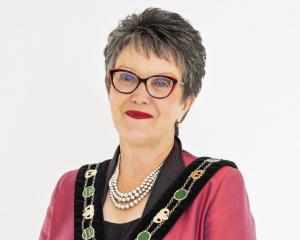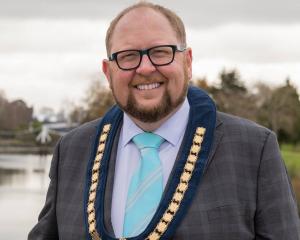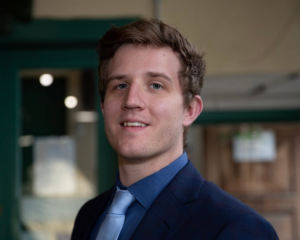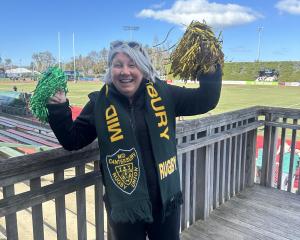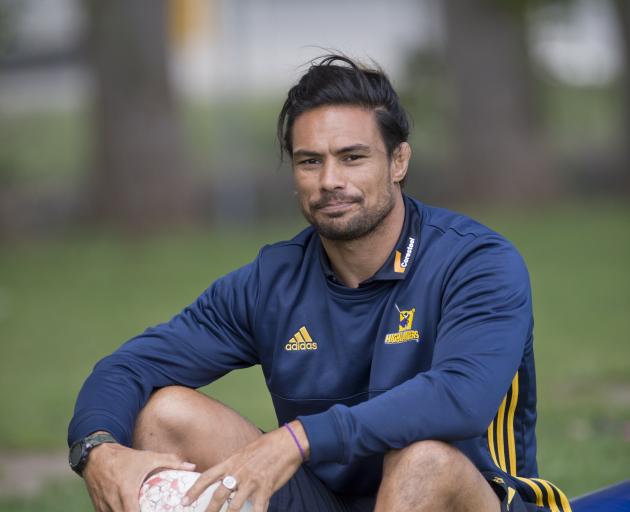
Shane Christie has been remembered as a man who "lived his life as if he were in a scrum", a courageous leader and a staunch advocate for rugby player welfare, at his funeral service in Nelson.
The former Tasman Mako captain and Highlanders Super Rugby flanker died suddenly last week at the age of 39.
Christie retired from professional rugby in 2017 because of severe post-concussion symptoms, and had become a passionate advocate for better understanding and prevention of brain injuries in the sport.
He had spoken publicly about his belief he was suffering from chronic traumatic encephalopathy (CTE), which is linked to repeated head trauma, and it can only be definitively diagnosed after death by examining brain tissue.
The foyer and grounds of the Trafalgar Centre were filled with whānau, friends and ex-teammates and former All Blacks on Tuesday, who gathered to farewell the man they described as an unassuming leader, who was loyal, caring and left a mark on all of the teams he represented.
Tasman Mako captain David Havili said Christie was the ultimate teammate - a fierce, courageous leader, who was an inspiration to young players.

"You taught us the values of mateship, a team first mentality and standing up for your people. You were a big believer that if we had a great culture first, then the rest would take care of itself.
"To this day, your fingerprints are all over everything we do at the Mako, so we say goodbye to you, Shane. Your legacy will live on forever at this club.
"Rest easy, our great mate. Thank you for being you."
Christie's former girlfriend Holly Parkes, who remained a close friend until his death, said he had been dealing with the symptoms of repeat concussions for the past nine years.

"He described it as an electrical circuit board, misfiring, giving him shooting pains and a constant ache that never left him," she said.
Parkes said she wished she could have prevented the damage Christie suffered while playing rugby between the ages of 19 and 32.
"If I could travel back in time in the moments before he took those big hits, I'd run out on the field, I'd scream, I'd beg him to retire, to stop. I'd stand between him and the man coming for him. I'd ask him if he knew the value of his mind, his personality, of his Cheshire Cat grin, of his warmth and openness," she said.
"Instead, I stood on the sidelines cheering him on towards his own demise."

"A coach and as a man, he set his sights on being the absolute best he could imagine and he was willing to endure any amount of pain in order to feel inside of himself that he had achieved his idea of excellence.
"He inspired those around him to aim for similar heights and to do it with a sense of integrity."
A staunch advocate for player welfare
Nelson lawyer Craig Morice said he first met Christie nearly a decade ago when he acted for him during end of career negotiations with New Zealand Rugby (NZR) and the two went on to become good friends.
Morice said in 2017, with NZR taking its time to finalise the end of Christie's career, he pushed for an urgent appointment with a leading neurological specialist in Melbourne because Christie's sleep and headaches were getting worse.
"That specialist concluded that Shane should not return to play rugby again, from that point on, he was determined to understand as much as he could about concussion/repetitive head knocks and CTE," he said.
"He became increasingly concerned about player welfare and the steps NZR and the Players Association were taking to protect players."
Morice said Christie believed he was exhibiting early symptoms of CTE and he too, strongly suspected that was the case.
Morice said he and Christie met senior NZR officials and the New Zealand Rugby Players Association in 2018 when it was agreed that an independent review would be carried out, led by a senior barrister, into the management and care of Christie's concussion injuries during his employment as a professional rugby player in New Zealand.
The agreed terms of reference were to identify and make recommendations to NZR in relation to any lessons and/or improvements to the process of handling future similar injuries suffered by professional players.
"Shane was adamant with me that the terms of reference had to include this, as it had to be more than just about what happened to him, it had to be about those that played alongside him and those that would follow in the future," Morice said.
An extensive 100-page review, with five recommendations about concussion and repetitive rugby head knocks was released in April 2019 but despite Christie's wishes, has not been made public.
"Shane told me he thought he had let his teammates and friends down, by not protecting them more," Morice said.
After the death of his former Mako teammate and friend Billy Guyton in 2023, Christie co-founded the Billy Guyton Foundation to raise awareness of and prevent brain injuries in rugby, while calling for increased duty of care in the sport.
Guyton was the first professional rugby player in New Zealand to be diagnosed with CTE in 2024.
As per his wishes, Christie's brain has been donated to the New Zealand Sports Human Brain Bank at the Centre for Brain Research in Auckland to assist with further research into the neurodegenerative disease.
From club rugby to Super Rugby and representing NZ
Close friend Craig Moore said Christie was born on 23 July 1985 in Palmerston North. He spent his early years in Canvastown before moving to Wellington around the age of 10, where he went on to attend Upper Hutt College, before moving to Nelson after he left school.
He completed a building apprenticeship and worked as a builder while playing club and provincial rugby for the Nelson Rugby Football Club and Buller.
Moore said Christie made his debut for the Mako in 2010, later captaining the side through one one of its most successful eras.
"His outstanding performances led to selection, firstly with the Crusaders, and after with the Highlanders, where he played a big part in the historic 2015 Super Rugby title. His impact saw him become co-captain of the Highlanders in 2016," he said.
His Mako career spanned six years and 73 games. He captained the team to its first championship title in 2013, then coached Tasman in two back-to-back premiership titles in 2019 and 2020.
He also represented the All Blacks Sevens and the Māori All Blacks, Moore said.
"Shane's life was one of passion, whatever he turned his hand to, he gave everything, building, rugby, surfing, golf, completing his skydiving hours in record time, a yoga retreat in India, he travelled the world seeking adventure," he said.
"As a friend Shaneo was loyal, honest and cared deeply, always genuine and checking in on us and our whānau, even through his own battles."
Christie's sister Katrina said his death was one of her whānau's darkest moments.
She said there had been an outpouring of condolences through social media but with them came misinformation and insinuations about Christie and struggles at the end of his life.
"I wished I knew when he started rugby what the possible outcome was going to be, and I would have said the price tag is not worth the sacrifice, but he loved the game, and it brought him so much joy," she said.
She said Christie brought an enormous amount of joy to his family and was a devoted son, brother and uncle.
"From the laughter that still echoes when we remember your cheeky grin, and from the countless smiles and hugs you so freely gave, your legacy lives on in the hearts you touched," she said.
"Though our grief is deep, so too is our gratitude for the time we had with you. Rest easy, little brother, we will carry your love with us always."







